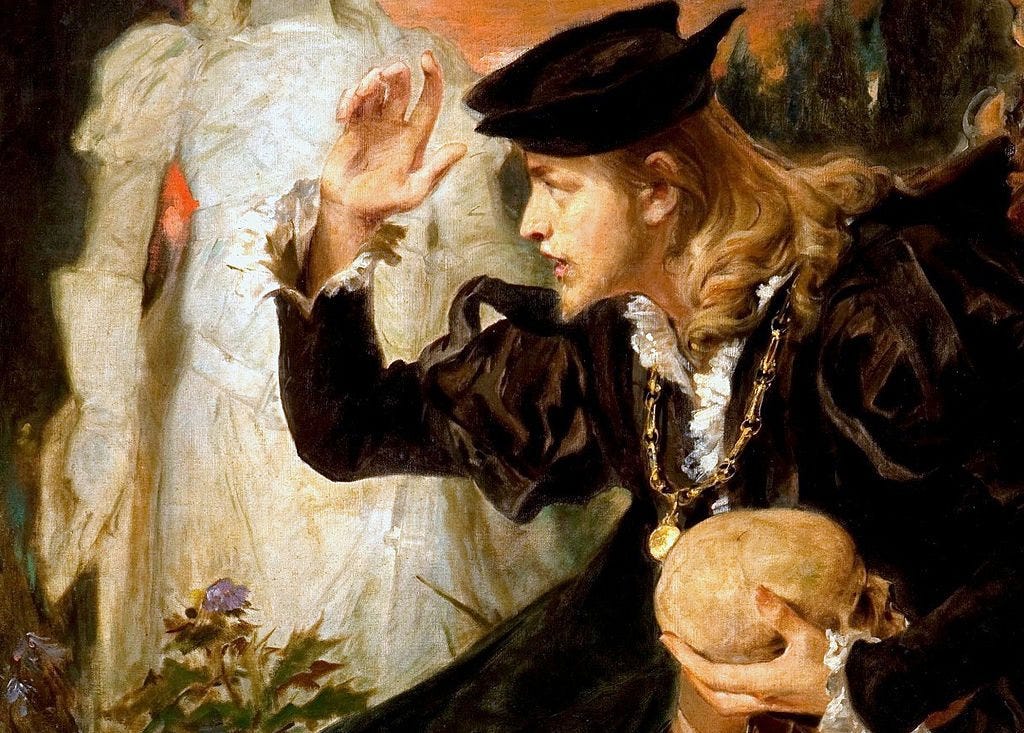To Be or Not to Be?
Unpacking Shakespeare's greatest speech
Prince Hamlet’s “To be or not to be” soliloquy is perhaps the most famous speech in all of literature. It occurs at the heart of Shakespeare’s play Hamlet, when the young prince is at the peak of his despair.
Why is Hamlet suicidal? Because he’s been tasked with a burden few men can bear: to murder his uncle and avenge his father.
But Hamlet’s speech is about more than suicide. It’s pedagogical — a meditation on the nature of being itself. When you understand Hamlet’s despair, you understand something essential about human nature, man’s purpose, the desire for death, and the path to living well in a world filled with suffering, treachery and villains.
Here’s a breakdown of Hamlet’s “to be or not to be” soliloquy — and the meaning behind the madness of Shakespeare’s most tragic protagonist.



